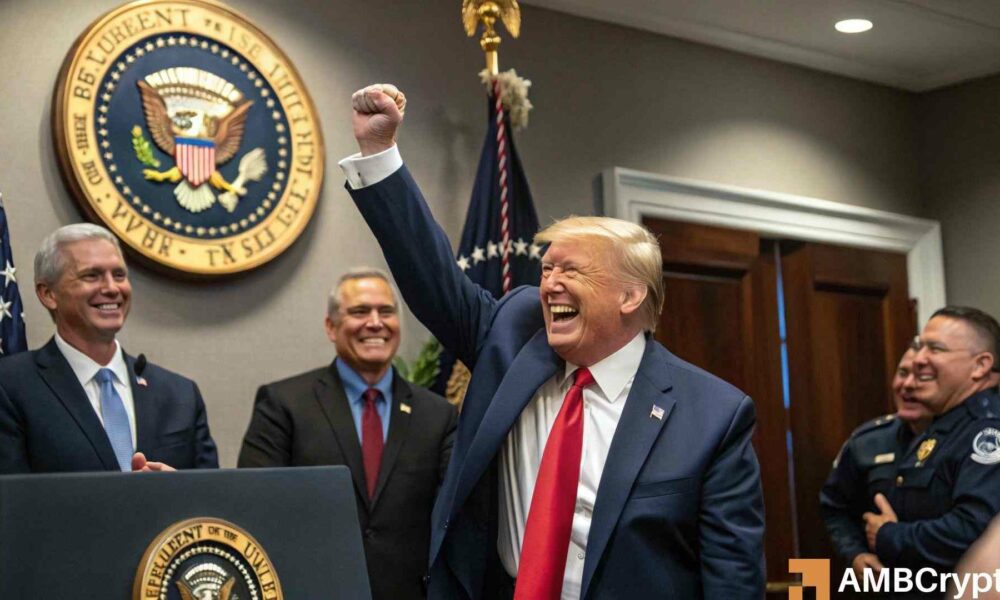Title: The U.S. Department of Justice Disbands Cryptocurrency Enforcement Unit: A Shift in Regulatory Landscape
In a significant development for the cryptocurrency sector, the U.S. Department of Justice (DoJ) has officially disbanded its cryptocurrency enforcement unit, marking a pivotal change in the regulatory environment for digital assets. Announced in a memo from Todd Blanche, the deputy attorney general, the decision intends to realign resources towards more pressing issues, like immigration and procurement frauds, rather than pursuing regulatory actions in the cryptocurrency space. This move is seen as a win for the crypto industry, which has faced heightened scrutiny and regulatory pressure in recent years. Despite the disbandment of the National Cryptocurrency Enforcement Team (NCET), the DoJ emphasizes its commitment to combating criminal activities that exploit digital assets, indicating a nuanced approach to cryptocurrency regulation moving forward.
Blanche’s memo pointedly criticized the previous administration’s approach to cryptocurrency, labeling it a "reckless strategy of regulation by prosecution." He highlighted that the DoJ does not act as a cryptocurrency regulator but rather focuses on prosecuting individuals who commit fraud against digital asset investors or utilize cryptocurrencies for illicit purposes, such as terrorism financing, organized crime, and narcotics trafficking. This clarification marks a significant departure from the stringent regulatory environment fostered in recent years under the Biden administration, signaling a shift towards a more focused enforcement agenda that prioritizes legitimate concerns over broad regulatory actions.
The recent changes reflect a notable trend within the regulatory landscape, particularly as the newly implemented Trump-led SEC (Securities and Exchange Commission) seeks to reverse many enforcement measures instituted under the previous administration. High-profile actions against major players in the crypto industry like Coinbase and Binance have been scaled back, signaling an easing of the regulatory environment that crypto firms have had to navigate. This strategic pivot may enhance the operational landscape for several cryptocurrency firms, allowing them to innovate and grow without the looming threat of punitive regulatory actions disrupting their activities.
Industry leaders have reacted positively to these shifts. Amand Tuminelli, chief legal officer at the DeFi Education Fund, expressed elation, stating, "The vibes here are very good. Prosecution by regulation is over." Echoing this sentiment, Coinbase’s Chief Legal Officer, Paul Grewal, remarked that the Justice Department’s guidance signifies a crucial turning point, suggesting that the crypto sector can now anticipate a more favorable regulatory climate. This change in tone is anticipated to inspire renewed confidence among investors and developers within the cryptocurrency and blockchain technology space.
However, the rapid shift towards a more lenient approach to cryptocurrency regulation has not been without controversy. Critics have emerged, expressing concerns regarding potential conflicts of interest, particularly relating to President Trump’s involvement in the sector through ventures such as the TRUMP memecoin and World Liberty Financials. Such associations have raised questions about the integrity of the regulatory process and the motivations behind the DoJ’s decision to dismantle its cryptocurrency enforcement unit, especially amid ongoing discussions about the proper regulatory frameworks for this rapidly evolving market.
Looking ahead, the disbanding of the DoJ’s cryptocurrency enforcement unit sets the stage for a new regulatory paradigm centered around support rather than stringent oversight. While it aims to tackle serious criminal activities associated with digital assets, this strategic reevaluation could foster a more conducive environment for innovation and growth in the cryptocurrency sector. As the industry awaits further developments and guidance, the focus may now shift to establishing clearer regulations that balance the need for security with the desire for growth and innovation in the digital economy. Ultimately, the implications of these changes will be closely watched by stakeholders across the financial and regulatory landscape.
















